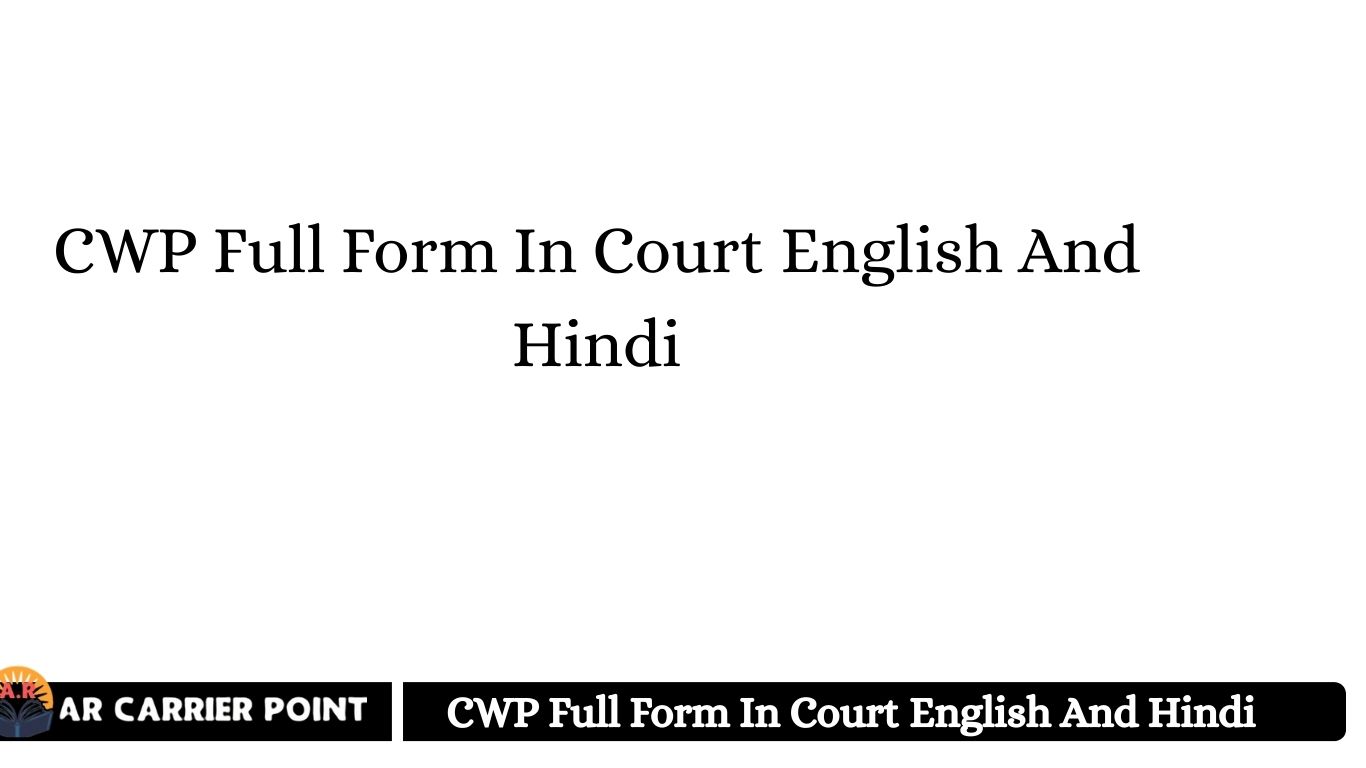CWP Full Form In Court English
The term CWP in the context of law and the judiciary stands for “Civil Writ Petition.” A Civil Writ Petition is a legal document filed in a High Court under Article 226 of the Constitution of India. It is primarily used by individuals or entities to seek judicial remedies when they feel that their fundamental rights have been violated or when they are aggrieved by unlawful actions of public authorities. Unlike regular civil suits, a CWP is a constitutional remedy, which allows the petitioner to approach the High Court directly without going through lower courts.
Civil Writ Petitions are significant because they ensure protection of citizens’ rights, uphold the rule of law, and act as a check on administrative powers. Common examples include petitions for protection of fundamental rights, release of illegally detained persons, or challenging arbitrary governmental actions.
CWP Full Form In Court Hindi
कानूनी संदर्भ में CWP का पूरा नाम “सिविल राइट पिटिशन” (Civil Writ Petition) है। यह एक ऐसा कानूनी दस्तावेज है जिसे व्यक्ति या संगठन हाईकोर्ट में दाखिल करता है, खासकर तब जब उन्हें लगता है कि उनके संवैधानिक अधिकारों का उल्लंघन हुआ है या किसी सार्वजनिक प्राधिकारी की अवैध कार्रवाई से उन्हें हानि हुई है।
CWP एक संवैधानिक उपचार है, जिसका मतलब है कि इसके माध्यम से कोई व्यक्ति सीधे हाईकोर्ट में अपनी याचिका दायर कर सकता है, बिना निचली अदालतों से गुजरे। इसका उद्देश्य नागरिकों के अधिकारों की रक्षा, कानून का पालन सुनिश्चित करना, और प्रशासनिक शक्तियों पर नियंत्रण बनाए रखना है।
Read More: ASN Full Form In Logistics English And Hindi
Frequently Asked Questions
What does CWP stand for in court?
CWP stands for Civil Writ Petition.
Who can file a civil writ petition?
Any individual or entity whose fundamental rights are violated or who is affected by unlawful actions of public authorities can file it.
Which court hears a civil writ petition?
A civil writ petition is filed and heard in the High Court.
Under which article of the constitution is CWP filed?
CWP is filed under Article 226 of the Constitution of India.
What is the purpose of filing a civil writ petition?
It is filed to seek judicial remedies against violations of rights or illegal actions by authorities.
Can a civil writ petition be filed directly in the High Court?
Yes, a civil writ petition allows direct filing in the High Court without going through lower courts.
What are common examples of civil writ petitions?
Examples include protection of fundamental rights, release from unlawful detention, and challenging arbitrary government actions.
Conclusion
In conclusion, a Civil Writ Petition (CWP) is an important legal tool that allows individuals to directly approach the High Court when their rights are violated or when they face unlawful actions by public authorities. It serves as a constitutional remedy to ensure justice, uphold the rule of law, and protect citizens’ fundamental rights. By filing a CWP, individuals can seek timely intervention from the judiciary and hold authorities accountable, making it a vital aspect of the legal system.

